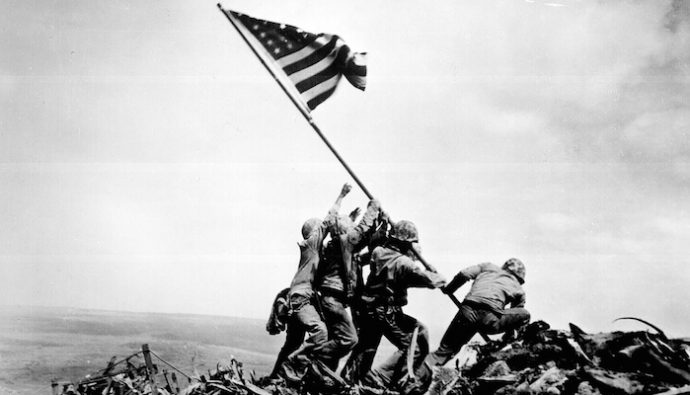According to Thomas Jefferson (who likely borrowed the quote from others), “Eternal vigilance is the price of freedom.”
Jefferson meant, at least in part, that from a national perspective, freedom is not something that can be taken for granted. It is not just achieved once, but over and over again; indeed, as soon as a nation stops paying attention to freedom it will be encroached upon by threats from the inside as well as the outside. That means if a nation wants to be free, then the price for that freedom is being always on watch. Always on guard.
Jefferson isn’t the only one who thought a lot about freedom; the Bible has much to say about it as well, albeit a different kind of freedom. It was Paul who originally wrote:
“Christ has liberated us to be free. Stand firm them and don’t submit again to a yoke of slavery” (Galatians 5:1).
There is an active command here – to stand firm in the freedom Christ has bought from us. In the same spirit that Jefferson argued, freedom is not to be taken for granted. It must be watched and fought for. If indeed you are careless, you will naturally drift away from the freedom for which Christ has set you free.
That sentiment makes sense politically, doesn’t it? Jefferson’s quote above has been used and reused again and again in a variety of disagreements, conflicts, and wars over the past 250 years or so in our nation. It has been the battle cry for the United States to take a proactive stance both at home and abroad. And the effort lives on – if we simply exist, then we will drift into non-freedom. We must fight.
And we must fight on a personal level in Christ because of our natural propensity to drift back into slavery. If we are not vigilant, our natural bent is to drift toward bondage. But slavery to what? And why? Surely once we have tasted freedom we would never, ever revert back into what Jesus has freed us from. Or so you would think.
Later on in the chapter, Paul writes this:
“For you were called to be free, brothers; only don’t use this freedom as an opportunity for the flesh, but serve one another through love” (Galatians 5:13).
If we are not vigilant, we will instead finding ourselves viewing freedom as an opportunity for indulgence. The thing is, this indulgence in the flesh may be either conscious or subconscious.
Consciously, we can indulge our sinful nature by looking at the grace of Jesus as license for immorality. We can simply sin and sin and sin, always counting on the fact that Jesus – sweet Jesus – is ready to forgive. We become grace abusers in this case. But we might also indulge our flesh subconsciously. This was the situation of the Galatian church. They weren’t grace abusers; they had drifted into the slavery of legalism. Though they had started out living in grace, they had chosen to revert back to the law and were resting in their ability to merit favor before God by their own acts of righteousness. This, too, is an indulgence of the sinful nature.
They were indulging their sinful pride. This is our drift. This is what happens when we are not vigilant.
A bit ironic, isn’t it? That our commitment to grace alone must be guarded? That we might either consciously or subconsciously yoke ourselves in slavery? And that in either case – when we abuse grace or when we negate it, we are indulging our sinful nature?
It’s true. And because it’s true, we must watch. We must stand firm. We must, for lack of a better term, try hard at being free.
—
This post originally appeared at thinke.org.
Subscribe to MichaelKelley.co
Never miss a new post. Subscribe to receive these posts in your inbox and to receive information about new discipleship resources.





